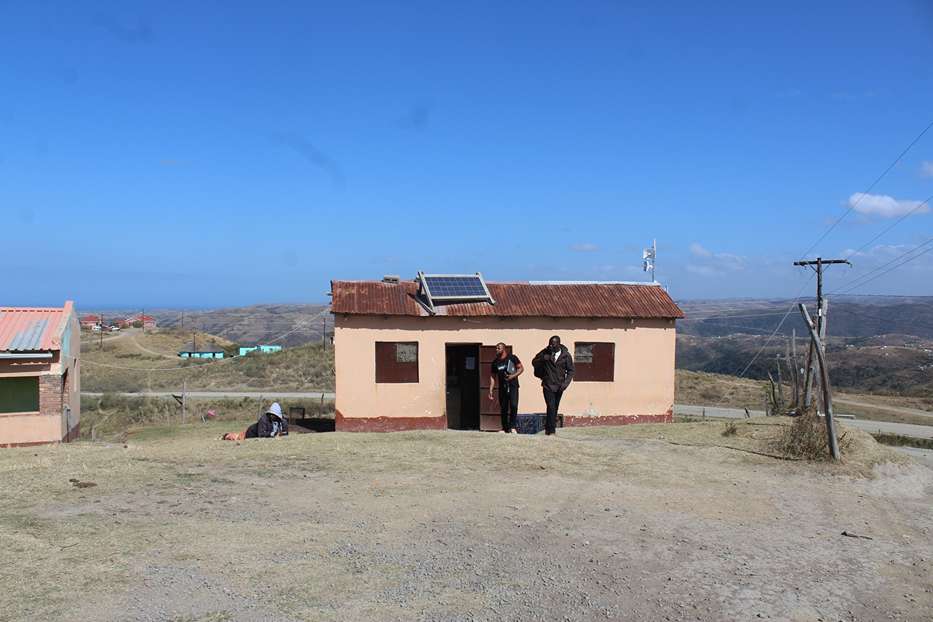Digital adoption took a quantum leap as a result of the COVID 19 pandemic, technology implementation that would have taken several years was done in months. The pandemic not only renewed the focus on universal access and universal service but also the importance of building local capacities as communities are the first respondents in times of a crisis or a disaster. With COVID 19 responses being largely online, the unconnected were excluded from not just access to the internet but much-needed information and services that affect livelihoods, education, and health. Over the last decade, we’ve seen growth in the first mile with an increase in undersea cables connecting to the continent, middle mile with national fibre optic infrastructure, however, last-mile connectivity especially in rural and remote areas lag behind, one of the reasons that many of the unconnected rural and remote don’t make a business case for commercial operators. Some challenges to the provision of affordable connectivity are the high cost of spectrum, equipment, licensing, backhaul and also lack of supporting infrastructures such as roads and electricity.
Although CNs have existed in Africa for quite a long time, very little was known about their existence not just in the regulatory space but also among the community networks themselves. Around 2016-2017, the workaround mapping existing community networks began to understand how they operate, challenges experienced and opportunities they present. Some the challenges experienced by CNs across Africa was the lack of policy and regulatory environments that could support the sustainability and scalability of these bottom-up models. This resulted in the starting of more focused policy and regulatory advocacy for community networks. It also started the coming together of CN operators building a movement that now has 22 community networks in 15 African countries with an annual Africa CN summit event.
Uganda
In 2019, the Association of Progressive Communications (APC) made a submission in a public consultation by the Uganda Communications Commission(UCC) on new license categories advocating for community networks to be included in the regulatory framework. In 2020, UCC adopted communal access in the new license categories. The eligibility for this category are:
- A community-based and not-for-profit entity seeking to provide telecommunications services to an unserved or underserved community
- License holders will be allowed to establish, operate and provide communal access to telecommunications services to a particular community.
- The license shall be for five (5) years renewable under the Uganda Communications Act 2013.
Although this was a significant milestone in the recognition and inclusion of community networks into the market structure, the license costs set at USD 3000 is not affordable for unserved and underserved communities.
Kenya
In October 2020, APC together with KICTANET and the University of Strathclyde with support from the UK Digital Access Program started engaging with the Communications Authority of Kenya to development of a licensing and shared spectrum framework for the community networks. The team engaged with different stakeholders in the telecom sector including existing telecom operators, equipment vendors and four pilot community networks to understand the challenges faced by the existing telecommunication operators in Kenya in delivering affordable access, recommendations for change and views on small scale operators especially community networks and their role in last-mile connectivity. This resulted in creating a draft licensing and shared spectrum framework for the community which went through public consultations. In the last quarter of 2021, CA approved the license for community networks with the below eligibility criteria.
- Exclusively for not-for-profit Cooperative Societies, Community-Based Organizations and Non-Governmental Organisations.
- Provision is within a sub-county geographical scope.
- Comprises of License both network facilities and application service provider license aspects resulting in a single license for operation.
- Exempt from USF contributions.
- Administrative Authorization of spectrum for non-protected wireless access within a sub-county
- Fee waiver for non-protected access to lightly-licensed and license-exempt frequency bands by wireless access systems
- A simplified application and compliance forms
- Initial operating fee and an annual operating fee of $50
Zimbabwe
In 2021, the Postal and Telecommunications Regulatory Authority of Zimbabwe (POTRAZ) Published a new Statutory Instrument (SI) on Telecommunications licensing and regulations. The SI introduced a unified telecommunications license that authorizes licensees to provide telecommunication network facilities, network services and application services under one license. District and Community Internet Service Provider licenses have also been introduced. The application fee for a community license is set at US$50 and renewal of $50. Both the district and community operators are exempted from paying annual license fee contributions and USF contributions. In May 2021 Murambinda CN was officially launched by the Minister of ICT, Postal and Courier Services Hon Janfan Muswere.
Even with the progress, the policy and regulatory environments in many African states are still unsupportive thus threatening the scalability and sustainability of community networks. The current licensing frameworks don’t make provision for not-for-profit network operators and there’s also the financial, technical, and reporting requirements are also often beyond the reach and capacity of community network operators not to mention challenges with access to spectrum.
This is a series of our publications on Community Networks.
Josephine Miliza is a network engineer passionate about enabling communities in Africa to leverage digital technologies for socio-economic empowerment. Josephine is the KICTANet Africa policy coordinator for the APC-LOCNET project. Twitter – @Msmiliza.
![]()




